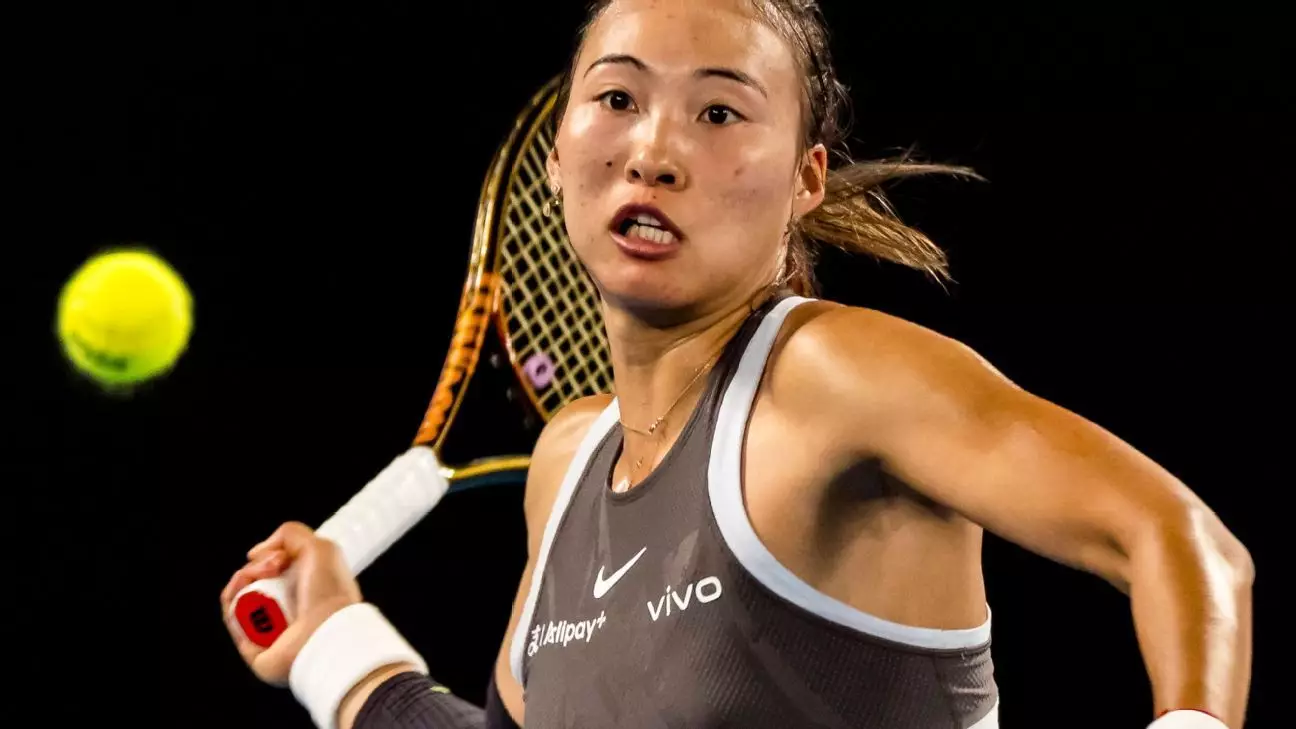Zheng Qinwen has undergone a remarkable evolution in just a year. Reflecting on her journey, it’s hard to believe she entered the Australian Open last January with a significantly different outlook and less experience in high-stakes matches. Fast forward to the present, she not only reached the finals in 2024 but also brought home an Olympic gold medal for China. These accomplishments stand as testaments to her resilience and growth in becoming one of the leading competitors in women’s tennis.
Entering the Rod Laver Arena again, Zheng, who is currently seeded No. 5, felt the weight of expectations along with the familiar shadows of nerves. During her first-round match, she faced off against Anca Todoni, a 20-year-old qualifier from Romania, who had yet to capture the limelight in her career despite her undeniable talent. Zheng’s nervousness before the match was palpable; she admitted to feeling “special emotion” as she stepped onto the iconic court, highlighting her affection for the Australian Open. This emotional connection can often motivate players to push beyond their limits, a factor that both helps and hinders them during crucial moments.
The opening set was a roller coaster; Zheng encountered several hiccups while attempting to serve out the set at 5-4. Renowned for her powerful game, she found herself battling not just her opponent but also the mounting pressure of failing to capitalize on her opportunities. Despite this tension, Zheng clinched the opening set in a tiebreak 7-6 (3) and then swept through the second set with a commanding 6-1 victory. This win, while satisfying, shed light on the challenges she faced — her nerves sometimes overshadowing her skill. Interestingly, she mentioned that her anxiety typically sharpens her focus, yet this match did not reflect her best performance.
The conditions in Melbourne added another layer to the match, with the retractable roof providing shelter from the stormy weather outside. Zheng’s capacity to adapt to the indoor environment played a significant role in her performance. The ambiance created by the closed roof could have been a double-edged sword, heightening her nerves while simultaneously offering a sense of security as she battled against the backdrop of thunder and rain.
Regardless of her triumph, it’s important to note that Zheng’s initial struggles raise questions about the psychological challenges athletes face when performing on such a grand stage. The contrast between her nerves prior to this match and her confident play during the preceding year is intriguing. Could it be that the pressure of maintaining her status as a top player weighed heavily on her? The tendency for high expectations to cripple a player’s clarity at the start of any significant tournament is a common theme in athletic performance.
As the matches progressed, Zheng’s impressive trajectory was paralleled by other top seeds in the tournament. Aryna Sabalenka, the two-time champion who defeated the 2017 US Open winner, Sloane Stephens, and Alexander Zverev’s smooth victory portrayed the single-minded focus essential to succeeding at this prestigious event. It’s essential to recognize that every match brings its own dynamics and pressures, variations that not only challenge the players but also add an unpredictable element to the tournament.
Beyond the immediate results of her opening match, the upcoming days hold a mixture of promise and uncertainty for Zheng. Success will require her not only to hone her skills but also to focus on the mental aspect of her game. The tournament layout, now extended to fifteen days, offers her chances to regroup and recalibrate between matches, a crucial factor for any competitor seeking to capitalize on their momentum.
Zheng’s journey reflects a broader narrative of growth, resilience, and the relentless pursuit of excellence among athletes at this level. This tournament stands as both a homecoming and a challenge for her, one that could reinforce her position as a frontrunner in women’s tennis if she can manage the pressures that accompany such stakes.
The journey continues, not only for Zheng but also for other players who are navigating their own paths on this competitive arena. The Australian Open is more than a starting point for the season; it’s a crucible that shapes and defines the careers of those brave enough to compete. As Zheng moves forward, her ability to embrace this challenge will ultimately determine her legacy on the sport’s grand stage.


Leave a Reply